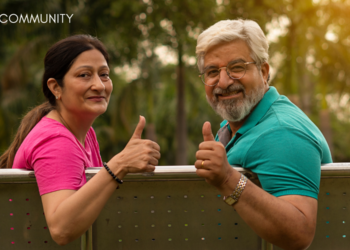Often, the health discussions in the senior circles are about diabetes, blood pressure, heart issues, arthritis, etc. Rarely do people discuss hypoglycemia, though it is common among seniors. This condition is characterized by low blood sugar levels. It can occur in patients under treatment for diabetes. People taking medicines for lowering blood sugar can have hypoglycemia and be unaware of it. It is a neglected complication of diabetes treatment and can have grave consequences unless managed. Hence, we must start talking about it to create awareness.
Understanding hypoglycemia

Join Now >
This condition occurs when blood sugar levels fall below 70 milligrams per deciliter (mg/dL), considered normal. It can happen due to many reasons, such as:
- Changes in eating pattern
- Medications (mostly diabetic)
- Hormonal changes due to aging
- Mismanaged diabetes
- Organ dysfunction (Kidney or liver)
- Excess alcohol consumption
- Autoimmune health conditions
- Stress
- Excessive exercise
- Pancreatic tumors
The issue is that most people are unaware that something like this can happen and are not aware of symptoms. Often, the only remedy they know is to eat something, especially sugar, if they feel dizzy. Here are some common symptoms you must watch out for:
- Feeling dizzy
- Sweating
- Confusion
- Fatigue
- Trembling
- Blurred vision
- Excessive hunger or cravings
- Anxiety
- Rapid heartbeat
Strange as it may seem, not everyone will have noticeable symptoms always. Hence, only periodic blood sugar level checks can help you spot this condition. If you do not have diabetes and experience these symptoms, it could mean you are pre-diabetic.
Hypoglycemia complications
If this condition goes unnoticed and occurs often, then it can impair your cognitive function and even cause coma and death. Such people are at a higher risk of dementia. It also can severely impact your heart and cause varied cardiovascular issues. It can also cause vision issues.
Management strategies
Here are some strategies that you can rely on to manage hypoglycemia.
Blood sugar monitoring
Monitoring blood sugar levels periodically is imperative to diagnose and manage this health condition, especially if you are on regular medications to lower blood sugar levels. One may never know when the low became too low. When the blood sugar levels vary, there is a need to adjust medications accordingly.
Diet
The role of diet in senior health cannot be overstated! Every other issue we discuss will revolve around a healthy diet as one of the best health management strategies. Eat a balanced diet with whole grains, fresh fruits and vegetables, and contain lean proteins. Avoid processed foods, especially those with added sugar.
Watch your lifestyle
Fad diets that encourage you to skip meals, excessive exercise, irregular eating and sleeping patterns, consuming alcohol, etc., are harmful habits that can land you in trouble. Eat and sleep on time, and do not follow excessive diet patterns without consulting your physician, especially those that require you to skip meals.
Carry emergency remedy
People prone to the condition must carry emergency remedy kits that are fast-acting carbohydrates such as glucose tablets, fruit like bananas or apples, sugar sachets, toffees, etc.
Awareness is the key here. You and your loved ones around you must know and understand the condition so that you can seek help when needed. The best way to keep a watch is to have a diabetes home testing kit and test according to the doctor’s advice. Keep a journal of the readings and any symptoms that you notice so that they can be correlated to help a diagnosis.









